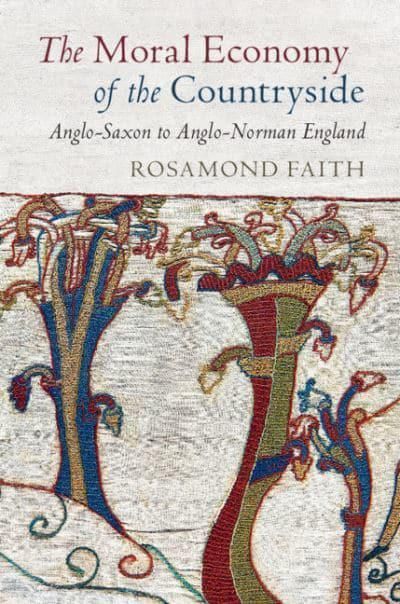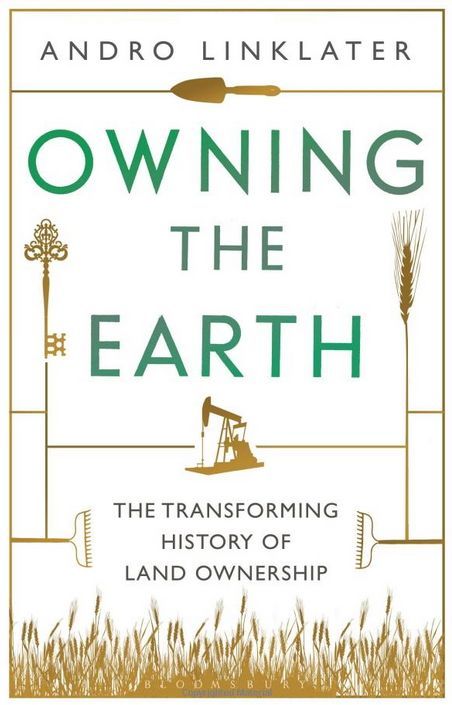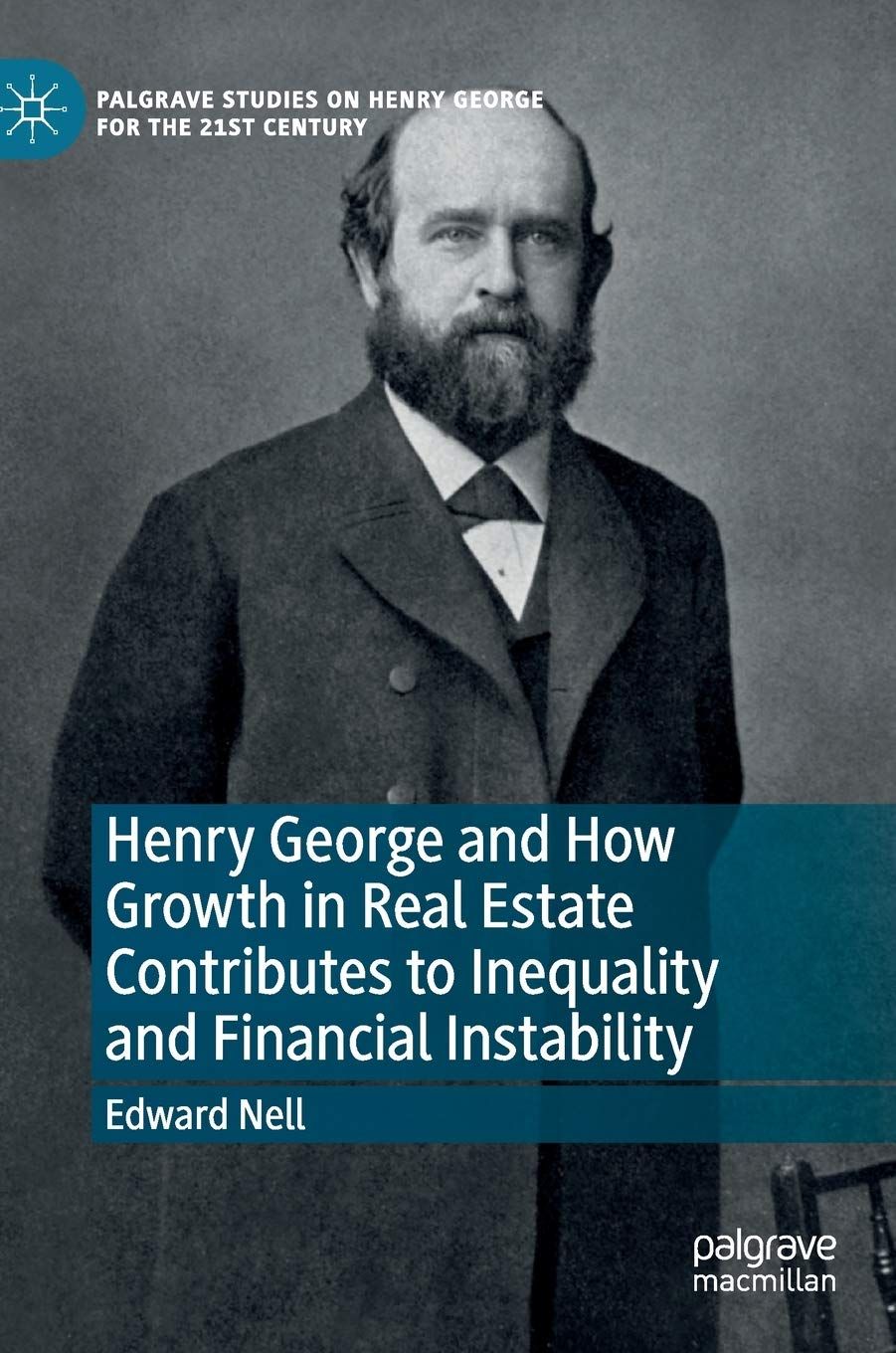Reclaiming the Commons
By Vandana Shiva
Synergetic Press 2020
Book Review by Joseph Milne
Vandana Shiva will probably be known to Georgists for her campaigns for regaining the commons and for establishing the Research Foundation for Science, Technology and Ecology in 1982. She has worked with many other organisations in the quest to recover the commons, especially in India and other poor nations where large corporations have taken over their indigenous resources to increase the wealth of the rich nations.
In her latest book, the full title of which is Reclaiming the Commons: Biodiversity, Indigenous Knowledge, and the Rights of Mother Earth, Vandana Shiva argues how corporate greed has taken the commons from communities, destroying good agricultural practice and the natural environment as well as the traditional knowledge and way of life of small communities.
Many chapters in the book illustrate this accumulating devastation of communities and the land. For example, she exposes the harm that stems from the patenting of seeds and crops, despite some legislation against it, thus “unleashing an epidemic of biopiracy and an enclosure of the biological and intellectual commons”.
Reminiscent of the imperialistic narrative of Columbus ‘discovering’ the American Continent and claiming it as terra nullius, which implied a brutal erasure of the indigenous people who had been living there before him, the patenting of life forms and seeds also creates an erasure.(p.78)
Farmers, she argues, have the right to breed seeds according to the land they work on in whatever varieties suit their local markets. They should not be compelled to purchase seeds they cannot breed from or afford. Such compulsion destroys the natural relation of the farmer with the land and with the community of which he is a part. It also depletes the natural diversity of seeds and crops which adapt to the climate and the land. International agreements, such as the UPOV Convention, that regulate the variety of seeds,
…has evolved as plant variety legislation suitable only to the socio-economic context of industrialised countries where farmers are no longer a large part of the population and do not have any control over plant breeding or seed supply. This situation is very different from contexts like India’s where the majority of the population continues to be engaged in farming and farmer’s seed production and supply is still the main source of seed. (p. 93)
The patenting of seed varieties on the basis that they are ‘invented’ by a company is a clear abuse of language since no seed can be ‘invented’ by any human means. Seeds can only be adapted in their varieties, as farmers do in normal practice according to the land and climate, and no amount of ‘adapting’ of a seed can establish a claim of ownership upon it as an ‘invention’. A very simple principle is at stake here: no claim of patent or ownership can be made on what nature has given freely. A strain of seeds is no different than a plot of land or a portion of the ocean. One might as easily claim a patent on a breed of dogs.
While this principle may be crystal clear to any Georgist, what makes Vandana Shiva’s book especially important is how she traces the devastating effects of such patenting through destroying the land and impoverishing biodiversity and taking the life out of communities and their traditions. It removes the farmer and cultivator from the land and reduces him to a mere utility for the large international corporations who serve only financial profit and have no regard for the well-being of either natural human cultures or the earth. It is ‘the land question’ writ large.
While restoration of the commons seems such an obvious necessity, especially in response to climate change which is a direct result of land theft and ‘biopiracy’, Vandana Shiva observes there are great obstacles in the path to restoration:
In the current times, when the commons has become a crucial concept in carving a transformative politics, one also finds the language of the commons being co-opted by the neoliberal institutions (e. g., World Bank, The Economist, etc.,) that attack it to render a positive spin to privatisation and legitimise a new wave of enclosures in the interest of ‘conservation’ while softening resistance. (p. 247)
This is reinforced by conflicting notions of what the term ‘commons’ actuality covers:
While ecologists centre their investigations on protection and conservation, economists delve deeper into ‘incentives’ and induced ‘cooperation’, political scientists explore the idea of the state as an ‘active agent’ or ‘decentralised agency’ and anthropologists continue to focus more on defining the exact locus of community. These debates within the community of researchers become significant to trace as these points of terminus and departures heavily shape the policies reaching the grass roots. A case in point being the famous publication of Harding’s Tragedy of the Commons in the 1960s and the resultant large-scale state intervention in resource management. (p. 249)
According to Vandana Shiva, a distinction must be drawn “between a system of commons per se and an ‘open access’ system. The latter assumes that resources are unmanaged with no ownership. This presumption of a lack of private property is instantly associated with a state of lawlessness and loss of control which in turn makes the resource ripe for a ‘tragedy’ as enunciated by Harding.” This assumption is rooted in “the flawed and narrow idea that resources can be managed effectively only if they are in the control of private individuals”. (p. 250)
This view is contradicted by many instances around the world that show successful systems of the commons in the hands of communities, being led through a collective rather than by individuals, “with these groups possessing their own rules and norms for managing the use of common resources and ensuring that the resources don’t vanish into their doom.” (p. 250) It is clear from philosophers such as Marcel Mauss, Shiva observes, that societies do not need to be organised around principles of markets to flourish. By contrast the idea of ‘managed commons’ is just another term for their enclosure.
While the large international corporations seek to subsume society under purely commercial ends, there is a growing awareness of the naturalness and spontaneity of commons:
The struggle for the commons is the most crucial struggle of our time and it is all around us in different forms and manifestations. Like any living organism, it is also mutating and becoming increasingly dynamic with new forms of social cooperation being created in various movements from ‘free software’, ‘solidarity economy’, ‘time banks’, ‘urban gardens’, and ‘Community Supported Agriculture to ‘food co-ops’, ‘local currencies’ and ‘creative commons’ licenses. There is a whole paradigm of new social relations being brought to life standing on the foundation of communal sharing. (p. 252)
While Georgists see an advance towards the recovery of the commons through the implementation of the land value tax which curbs exploitation of advantageous sites and habitats, what this new tendency towards social reform and a searching for a richer social life through collective sharing shows us, as Vandana Shiva presents it, is that the modern economy as we experience it is largely the product of the misappropriation of the commons by vested interests that have little concern for either the welfare of society or the earth which sustains all life. The commercialisation of the land requires the commodification of human labour, as Polanyi establishes in The Great Transformation. It is clear that a recovery of the commons, through the diverse ways in which it is presently arising, presents a serious challenge to the feasibility of the marketised society as we know it.
On a more optimistic side, Vandana Shiva’s research demonstrates that there is an inherent tendency in human nature towards cooperation and sharing at every level, provided it is not impeded. We are a social species first, and for many in our modern society, where everything is commercialised, including our ‘social media’, there is a growing sense of alienation and a loss of any sense of ‘belonging’ in society or in the landscape. Almost everything is commercially mediated so that the quest for profit has displaced natural production and exchange and curbed the cultivation of natural talents and skills.
This raises the question of modern law-making. Shiva argues that the aim our legal systems “cannot be to merely protect the interest of transnational corporations or practitioners of western science and technology systems”:
Indigenous knowledge systems aimed at self-provisioning and local self-reliance in nutrition and health care need a criterion of protection which is different from the ‘novelty’ and ‘industrial application’ criteria for patents. Instead of individual rights, such protection needs to be based on community rights and collective innovation. (p. 235)
It is highly significant that the British enclosures took place under the notion of individual rights – essentially the right of the land owner – while the notion of ‘community rights’ was never even conceived. In truth, only a community can have rights, since without community there is no body in which rights can exist or be exercised. The claim on individual rights is itself a form of theft of the commons. “The concept of ‘rights’ which is familiar to all of us today takes its origin in the 18th century, in the European Enlightenment and its tradition of individualism, materialism, and rationalism” which Shiva references to Lock’s Second Treatise of Civil Government. Modern liberal rights talk is really the product of the self-interested individualism which permits and conceals our false relation with the land and all it provides. Contrast this with how a community naturally works:
Indigenous knowledge producers innovate collectively. This innovation also takes place over time – it is accretional and informal. The knowledge evolves as it modifies, adapts and builds upon existing knowledge. A redefinition of ‘innovation’ is therefore needed that reflects this process of innovation cumulatively over time, and collectively across a community. The current definition is based on a false and artificial construction of individual innovation as a one-shot step in time. In the case of biodiversity patents, it is more often than not based on bioparicy. Neither in traditional indigenous system, nor in western scientific tradition is innovation an isolated activity in the temporal or social context. (p. 255)
In India this tradition of ‘collective innovation’ over time was destroyed by British colonialism:
The privatisation of common resources in inequitable manner by the British led to the non-recognition of rights of communities over these resources and increasing restrictions over their use. The consequence of legalised and de facto privatization of CPRs was to turn the non-cash economy into the market economy by affixing a price for most primary resources, which were earlier free. The introduction of the concept of private or individual ownership over resources by the British continued to be promoted even after independence. (p. 261-2)
The question of the commons is not simply a question of political economy. It is rooted in how a society understands itself as a society, not merely as free independent individuals. We, as Georgists, speak of the virtue of a tax on the value of land as retaining for the community what arises through the presence of community, thereby supplying a natural revenue for government and the civic provisions that individual labour cannot provide for itself. This revenue is itself a commons and cannot be individually owned. Its proper use lies in adaptive ‘collective innovation’.
Yet very few people see there is a ‘natural commons’ and a ‘civic commons’, one the gift of nature, the other the gift of community, neither of which are the product of labour. By default, modern western citizens regard themselves as private persons first, and members of society second. Yet plainly the opposite is true since the individual exists only by virtue of society and enjoys the benefits and rights which arise only through society. Vandana Shiva’s book shows how the prevailing individualistic view is the reverse of the truth, and that the privatisation of natural resources arises directly from it. The question of what may be privately owned can be settled only after the question of the commons is settled.
Community control over common resources represents the only real mechanism for ensuring sovereign control over resources. This framework does not determine how community norms function. It merely recognises the rights of communities and hence opens the legal option of limiting the rights of corporations. National legislation needs to recognise community rights through alternatives to intellectual property regimes. (p. 266)
Vandana Shiva observes that this is still understood in some indigenous communities. But also it has been long established in ancient sacred texts:
The Artha Veda, Brihat Parasara, and other related texts, clearly revealed that in the Vedic Period the Aryan Kings, after conquering an area, realized taxes for land granted but did not take over the inhabitant’s occupancy rights. This practice was even more pronounced during the Mauryan and Buddhist period. Even the Hindu and Muslim rulers continued with the same practice and did not interfere with the forest dwellers, tribal communities, nor their use of forest produce, though they did proclaim sovereignty over all land in their jurisdiction. (p. 262)
It becomes clear that the enclosures of land have profoundly distorted the natural emergence of small self-regulating and generally self-sufficient societies that once existed. The drift to the cities, creating the slums, not only removes labour from the land in sustainable local provision, it commodifies labour itself into a ‘resource’ for industrial monopolies of every kind. The so-called efficient division of labour only removes the population from small communities which live in harmony with nature and the biosphere, and where sharing or even gift economies play a major part in the provision of necessities. This raises the question of what is the natural size of a self-sufficient community which naturally safeguards its well-being through collective responsibility, placing a proportionate limit on private interest. Vandana Shiva challenges us, through enormous research into the enclosure of the commons, to look upon our modern industrialised society as a caricature of what would be a natural equitable society.
There is something of a challenge to the Georgist analysis of society here too, insofar as the present industrialised society is an accepted given, where its economic injustices are seen to be remedied largely through implementation of the land value tax. There is no doubt this would remedy basic economic injustices. Nevertheless, there is little Georgist literature that enquires into society as a whole, for example into the proper functions of government and law. Instead ‘the economy’ tends to be taken as a complete entity in itself, following the parallel tendency of neoclassical economics. The safeguarding of indigenous communities, such as the people of the Amazon forests, the patenting of seeds, the regulation of biotechnologies, the abuses of fossil fuels, the pollution of rivers and waterways, the extinction of species and so forth, are all matters requiring consideration beyond the implementation of a land value tax which, as presently proposed, only takes account of human exploitation.
There is an unspoken assumption that if the economy were rectified through levying a land value tax a just society would spontaneously emerge. In truth, however, the economy derives its form from values and conceptions above or outside the economic sphere. Vandana Shiva gives the example of modern rights being based on the private individual and the failure to recognise community rights, and how this individualistic conception of rights legitimised the enclosures, the waged labour of the industrial revolution, and colonialism.
An example in our own time is the commodification of education towards providing skills for the marketplace. A further example is the notion that, if left to itself, the market economy will provide wealth for all. This notion is reinforced by the dogma of deregulation and small government. It is ideas and values such as these that set the conditions of the economic sphere, and which in turn lead to its distortions and injustices. Regarding the economy as a closed autonomous realm removes it from both civil society, identifying the citizen as a mere ‘consumer’, and from the biosphere, identifying the land as mere ‘resource’.
The awakening of interest in the commons and its connection with concern for the environment opens a door to exploring economics in a fresh way. There is much for Georgists to learn here, but also an opening for a Georgist engagement in the land question as it presents itself in these modern forms. While few people are interested in tax reform, many are now deeply concerned with the land as our habitat shared with all living creatures. The question of the place of human society in nature is forcing itself upon the world at this time whether we are interested or not. It is an open invitation for Georgist adaptation and engagement.




